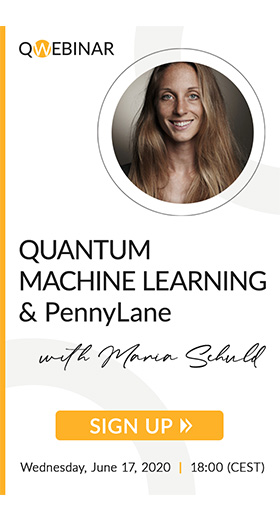
Quantum Machine Learning and PennyLane
Maria Schuld (Xanadu and University of KwaZulu-Natal)
18:00 (CEST), June 17, 2020
Moderators: Abuzer Yakaryılmaz (QLatvia) and Ayşin Taşdelen (QTurkey)
Organizers: Abuzer Yakaryılmaz (QLatvia) and Agnieszka Wolska (QLatvia)
See the recording of the event on YouTube >>

From Maria:
“Algorithms that run on quantum computers – so-called quantum circuits – underlie different laws of information processing than conventional computations. By optimizing the physical parameters of quantum circuits we can use them like neural networks, and train circuits to generalize from data. This talk highlights different aspects of such “variational quantum machine learning algorithms”, including their role in the development of near-term quantum technologies, their interpretation as a cross-breed of neural networks and support vector machines, and strategies of fitting the quantum model to data. As a practical implementation, I will show how to use the open-source software framework “PennyLane” to integrate quantum circuits with machine learning libraries such as PyTorch and Tensorflow.“
About Maria:
Maria Schuld works as a researcher for the Toronto-based quantum computing start-up Xanadu, as well as for the Big Data and Informatics Flagship of the University of KwaZulu-Natal in Durban, South Africa.
She received her PhD from the University of KwaZulu-Natal in 2017 for her work on the intersection of quantum computing and machine learning, which was published as the book “Supervised Learning with Quantum Computers” (Springer, 2018, co-authored by F. Petruccione). Besides her physics background Maria has a postgraduate degree in political science, and a keen interest in the interplay of emerging technologies and society.
